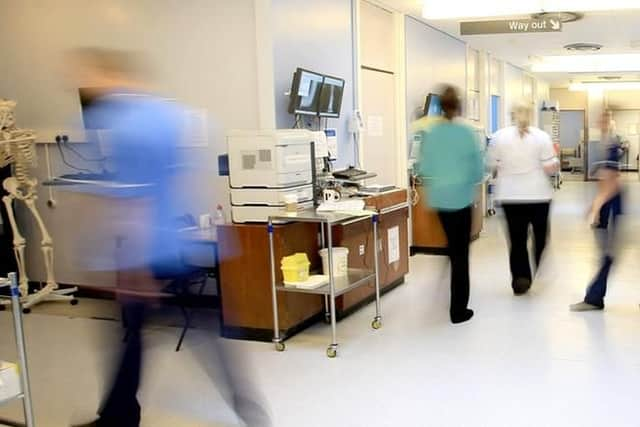Hospital trust urgently needs more nurses and midwives


The Royal College of Nursing (RCN) says a rise in advertised posts across England is being fuelled by EU workers returning home and the Government's failure to train enough nurses domestically.
NHS Digital data shows that the equivalent of at least 308 full-time nursing and midwifery jobs were advertised by the Doncaster and Bassetlaw Teaching Hospitals NHS Trust between July 2018 and June this year.
Advertisement
Advertisement
These made up 32 per cent of the roles posted by the trust during the period.


The latest workforce data for the trust shows it employed 1,530 full-time nurses, health visitors and midwives in May – making up 29 per cent of its staff.
Across all trusts in England, around 342,000 full-time roles were advertised over the twelve-month period.
Nursing and midwifery vacancies accounted for about 148,000 of these – 43 per cent of the total.
Advertisement
Advertisement
In May, 30 per cent of the workforce across all trusts in England was nurses, health visitors and midwives – 308,000 in total.
Patricia Marquis, RCN England director said the problem is partly being driven by 'great EU nurses' going home or choosing to go elsewhere in the first place.
But she stressed that the biggest factor was the Government failing to train sufficient numbers of staff.
She added: “These alarming figures should have been a wake-up call but instead we are still lacking a comprehensive workforce strategy that addresses the reasons nursing staff are leaving, whether that’s inflexible working or intolerable working conditions.
Advertisement
Advertisement
"The nursing shortage needs short and long-term solutions, including immediate investment of £1 billion annually in nursing supply.
"Similarly, a law must clarify who is accountable, at a national and local level, for ensuring there are enough nurses to meet the country’s future care needs.
NHS Digital said that, as one job advert can be used to fill multiple vacancies, the figures show the minimum number of advertised roles.
Advertisement
Advertisement
It says the vacancy figures should be treated with caution, partly because not all trusts use NHS Jobs – one of the main sources of the data – to post all vacancies.
An NHS spokesman said the number of nurses, midwives and health visitors employed in the NHS in England is growing.
The spokesman added: "We are taking a number of steps to accelerate that progress, including launching the ‘We Are The NHS’ recruitment campaign, which has seen a 4.5 per cent increase in nursing applications, funding thousands more clinical placements for those in training, and rolling out successful nurse retention programmes, including to primary care.”
A Department of Health and Social Care spokesman said it is providing higher pay, more flexibility and career development to help retain staff, adding 5,000 extra university places to study nursing, and training 25 per cent more midwives.
They added: “EU workers play a vital role across the health and social care system, and we want them to stay and apply to the EU settlement scheme to secure their long-term status in the UK.”